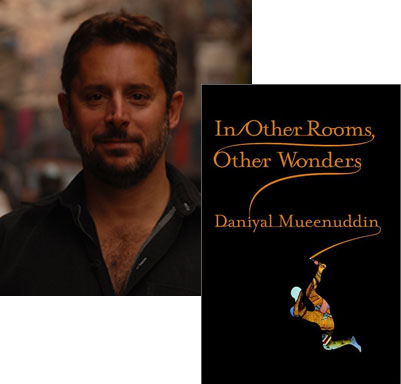How “The Scarlet Ibis” Helped Peter Neofotis Find His Voice

For the last three years, Peter Neofotis has been performing his short stories in various venues around New York City—all of them set in a fictional community which gives his debut collection its title: Concord, Virginia: A Southern Town in Eleven Stories. As I was reading the first stories, given that one of them is about a Korean War veteran fending off an inquisitive reporter’s attempts to get him to say something inspiring for the young men heading out to Vietnam, I made assumptions about Neofotis’s age that proved completely off base; turns out he’s still on the young side of 30. And yet his voice is already clearly identifiable as his own, and it’s unlikely, once you’ve read one or two of his stories, you’d mistake any others you come across for anybody else’s. When I asked if he would discuss his literary inspirations, he picked a story that helped shape both his writing and his performances.
I have just reread James Hurst’s “The Scarlet Ibis,” and once again, it has made me weep—just as it did when I read it in my high school freshman English class ten years ago. I remember the entire class—a very mixed bunch in a public high school—had been moved by the story. Mrs. Lynda Gray, a terrifyingly brilliant teacher, even cracked a tear when she read a few lines from its pages:
“It’s strange that all this is still so clear to me, now that that summer has long since fled and time had had its way…”
The tale behind the “The Scarlet Ibis” is as lonesome and beautiful as the story itself. James Hurst wrote it in his 30s, a few years after taking a job at a bank, to express his grief over his failed career as an opera singer. And though it is his only writing to ever receive national attention, it was a phenomenal success: first published in The Atlantic Monthly in July 1960, it won the magazine’s annual fiction prize then, as Hurst has commented, “took on a life of its own” and has been republished in several anthologies. Often, it is used to teach symbolism. For the death of the stray scarlet ibis foreshadows the death of the narrator’s frail but wondrously lucid brother Doodle.
“the sick-sweet smell of bay flowers hung everywhere like a mournful song…”
1 July 2009 | selling shorts |
Daniyal Mueenuddin Has “The Singers” Running Through His Head

I had the pleasure of meeting Daniyal Mueenuddin a few months ago when he came to New York a few months ahead of the publication of In Other Rooms, Other Wonders, his debut collection of short stories, introducing himself to the literary media. I quickly became engrossed in his stories about life in the cities and villages of Pakistan—this is definitely one of the first great collections of 2009, and if I know the folks at The Story Prize, they should already be setting it aside for the shortlist from which they draw their shortlist. I invited Mueenuddin to tell readers about one of his favorite short stories; in a wonderful twist, he chose instead to focus on a Turgenev story that’s stuck in his head for slightly different reasons.
Turgenev is not the greatest of the Russian writers of prose fiction—Nabokov ranks him fourth, after Tolstoy, Gogol, and Chekhov—and “The Singers” is not my favorite short story. The ending, however, has always intrigued and troubled me, and often lodges in my mind when I’m considering the endings of my own stories.
Since I’m indulging in lists and rankings, I will suggest that, when writing short stories, the hardest part is the ending, then the beginning—and then, surprisingly—the title. Beginnings are to a degree given—there’s a reason that you’ve chosen to write this particular story, something you heard or an image or a situation—and so, as you sit facing the blank page, pencils sharpened, lights adjusted—you know more or less what direction you’re heading in. And then, journeys begin with light feet and a light heart, the wind at your back and no monsters yet encountered.
Titles are a special case—some people have a knack for them, like crossword puzzles or naming dogs. We all have our favorites: Blood Meridian, The Wide Sargasso Sea, etc., etc.
But endings! Endings are vexing. There you are, with all the long puffing train behind you, pushing you, the weight of the whole story pushing you forward, now as you reach your terminus—and yet, you must go off the rails, and going off the rails, you must keep the wagons behind you upright and must pull the whole thing up to the wrong station, the surprising station, the right station, but right in a way that neither you nor the reader expected, built of ice or rococo plaster, rainswept or haunted or full of bankers.
This is where Turgenev’s story comes in.
27 January 2009 | selling shorts |

 Our Endless and Proper Work is my new book with Belt Publishing about starting (and sticking to) a productive writing practice.
Our Endless and Proper Work is my new book with Belt Publishing about starting (and sticking to) a productive writing practice. 
